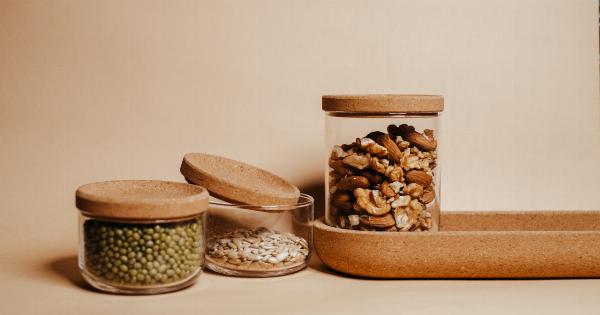Nuts and seeds are a popular snack and ingredient in various recipes. They are also nutritious and provide a range of health benefits. However, they can go rancid quickly if not stored properly.
That’s why it’s important to know the best practices for preserving nuts and seeds. In this article, we’ll discuss some of the best tips and tricks for keeping your nuts and seeds fresh for longer.
Tip 1: Choose High-Quality Nuts and Seeds
One of the best ways to ensure your nuts and seeds stay fresh is to start with high-quality options. Look for nuts and seeds that are fresh and not past their expiration date.
Additionally, choose those that are stored in a dry and cool area with good air circulation. Avoid those that are exposed to moisture or heat, as they can go rancid quickly.
Tip 2: Keep Nuts and Seeds in Airtight Containers
Another important tip for preserving nuts and seeds is to store them in airtight containers. This can help prevent them from being exposed to air, which can cause them to go stale or rancid faster.
When storing nuts and seeds in an airtight container, try to remove as much air as possible before sealing the container. You can also use containers that have a one-way valve to help release any built-up gases.
Tip 3: Store Nuts and Seeds in the Fridge or Freezer
If you want to keep your nuts and seeds fresh for even longer, you can store them in the fridge or freezer. The cold temperature can help slow down the oxidation process, which can lead to spoilage.
When storing nuts and seeds in the fridge or freezer, make sure to use an airtight container to prevent moisture from getting in. It’s also a good idea to label and date the container so you know when you stored the nuts and seeds.
Tip 4: Roast Nuts for Longer Shelf Life
Another tip for preserving nuts is to roast them. Roasting can help remove any excess moisture, which can extend their shelf life. Additionally, roasting nuts can bring out their natural oils, which can enhance their flavor.
To roast nuts, spread them out on a baking sheet and bake them in the oven at 350 F for 10-15 minutes, or until they are golden brown.
Tip 5: Avoid Exposing Nuts and Seeds to Light
Light can also cause nuts and seeds to go rancid faster. When storing nuts and seeds, it’s important to avoid exposing them to light as much as possible. This can be achieved by storing them in a cabinet or pantry, or in a dark area of your kitchen.
If you’re storing them on a countertop, use a container that is opaque and limits the amount of light that gets in.
Tip 6: Use Oxygen Absorbers
Oxygen absorbers are small packets that contain materials that can help remove oxygen from the air. This can help prevent nuts and seeds from getting stale or rancid.
When using oxygen absorbers, it’s important to make sure they are food-grade and safe to use. You can find them online or at your local hardware store.
Tip 7: Don’t Mix Old and New Nuts and Seeds
When storing nuts and seeds, it’s important to avoid mixing old and new items together. Old nuts and seeds can release oils and cause spoilage, which can affect the entire batch.
Instead, try to use up your old nuts and seeds first before adding new ones to the mix.
Tip 8: Check Nuts and Seeds Regularly for Spoilage
It’s important to regularly check your nuts and seeds for any signs of spoilage, such as mold, off odors, or a rancid taste. This can help prevent any potential foodborne illnesses or reactions.
If you notice any signs of spoilage, it’s best to discard the nuts and seeds immediately.
Tip 9: Use Nuts and Seeds Within a Reasonable Timeframe
Even with proper storage, nuts and seeds can only last for a certain amount of time. It’s important to use them within a reasonable timeframe to ensure they are still fresh and safe to eat.
While each type of nut and seed has a different shelf life, most can last for several weeks to several months if stored properly.
Tip 10: Consider Vacuum Sealing Nuts and Seeds
If you really want to extend the shelf life of your nuts and seeds, consider vacuum sealing them. This can help remove any excess air and prevent moisture and other elements from getting in.
You can use a vacuum sealer machine or a special attachment for your food storage container.
Conclusion
Preserving nuts and seeds can seem daunting, but with the right tips and tricks, it can be easy and simple.
By choosing high-quality nuts and seeds, storing them properly in airtight containers, and avoiding exposure to light and heat, you can extend their shelf life and ensure they are always fresh and safe to eat. Remember to check your nuts and seeds regularly for spoilage and use them within a reasonable timeframe to get the most out of them.































